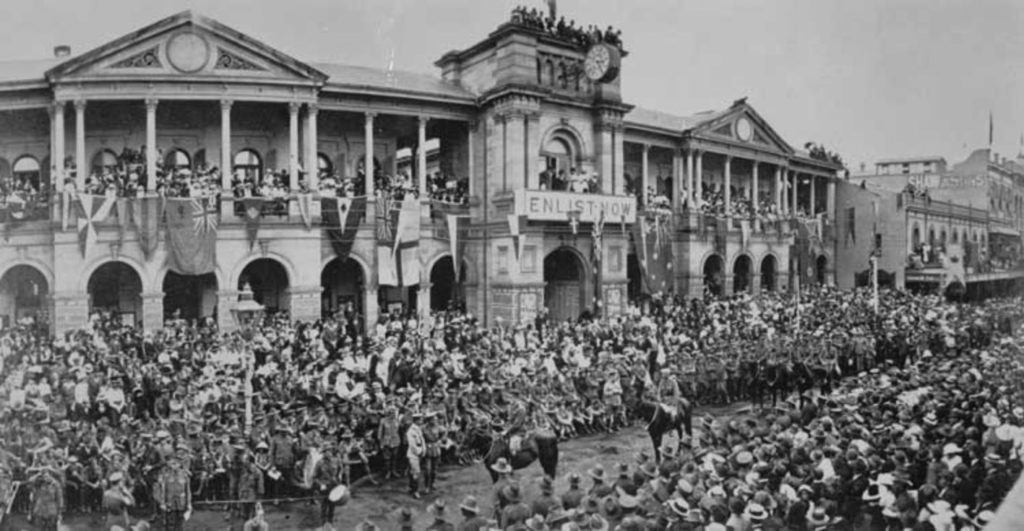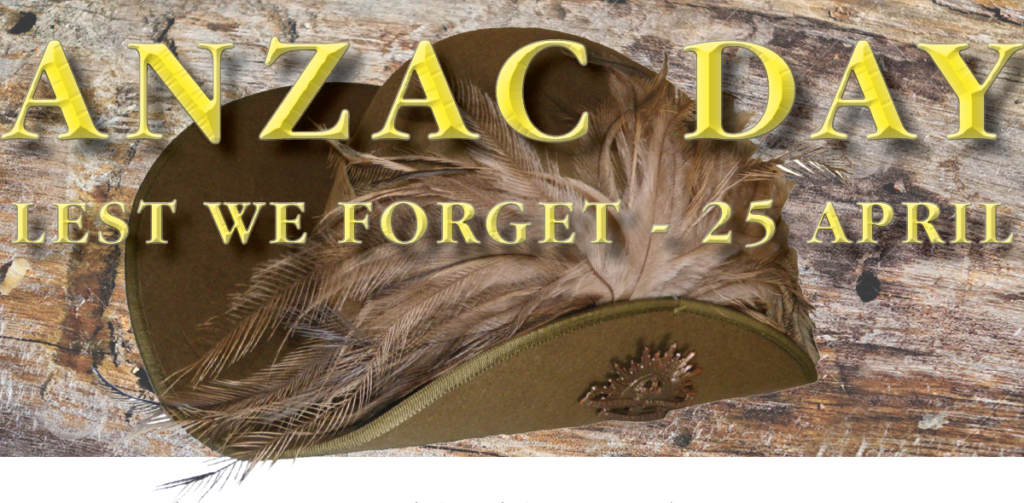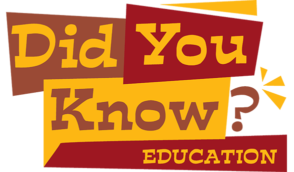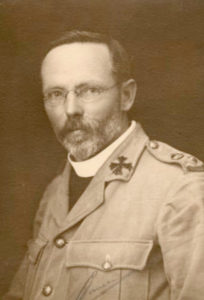The catch cry of Chaplain Lieutenant-Colonel Canon David Garland was ‘nothing is too good for our soldier boys’. This shows the heart of a man dedicated to the soldiers he served.
Born in Ireland in 1864, Garland migrated to Australia at the age of 22. He successfully campaigned for religious education to be introduced into schools, which became law in Western Australia in 1893 and in Queensland in 1910. Prompted by his Christian belief to serve others, he began as an army chaplain working with soldiers about to embark for the Boer War in 1896. In 1915, during World War I, he was appointed Senior Chaplain to the Queensland Expeditionary Forces, was made an honorary Lieutenant Colonel (a high rank in the Army), and served at the training camps in Enoggera Barracks, an army base in Queensland, while also in charge of a local church. He was a busy man!

David Garland had an important goal: to make life better for those who had volunteered to go to war. While serving in the Middle East in 1918–1919, he established eight clubs to give the soldiers an alternative to going out and drinking too much. He became the first army chaplain to conduct a Holy Communion service in the Church of the Holy Sepulchre in Jerusalem (the church believed to be built on the site of Jesus’ death, burial and resurrection).
Garland acknowledged the contribution and sacrifices of the members of Australian Light Horse during World War I in a report about their work in Egypt, Palestine and Syria:
Our troops here have made a magnificent contribution. It is not too much to say that the collapse of the enemy throughout the world was at least hastened by the cavalry feat which, sweeping Palestine and Syria in a manner unknown in history, ensured Turkey’s break-away from Germany. I fear that the hardships endured and the magnificent fighting done by the Australian Light Horse have not been fully realised in Australia, and yet it may safely be said that nowhere had our Australian soldiers harder conditions or more strenuous fighting or less relaxation and comforts, which facts make our work all the more necessary.1
Garland felt a deep commitment to honouring the work and sacrifice of soldiers like this. He was the honorary secretary to the Anzac Day Commemoration Committee of Queensland, who were the people who brought Anzac Day into being. In January 1916, while World War I was still being fought, it was announced that 25 April would in future be remembered as ‘Anzac Day’ each year. This was the date on which the Australian and New Zealand Army Corps (‘ANZACs’) had landed at Gallipoli and had made great sacrifices.
Garland was given the difficult task of creating the format for an Anzac Day service that various religious, military, government, business and community groups would all want to participate in. He carefully selected hymns, odes and poems that would be acceptable to all of these people, and he included the minute’s silence that we still observe today.
After World War I was over, David Garland was active in establishing public war memorials. It was his idea to have ‘Anzac ribbons’ made which were sold to raise money for building war memorials, looking after soldiers’ graves, and helping soldiers who had returned from the war but needed assistance as they settled back into civilian life.
Garland was also the one who initiated the Anzac Day marches. The first of these had been held in Brisbane on 25 April 1916, with 8,000 men marching through the streets. He campaigned for the government to make Anzac Day a public holiday in all states, and he achieved this goal by 1927. His selfless and untiring work for the soldiers, their families and the community was recognised in 1934 when he was awarded an OBE (Order of the British Empire) for his services to the community. He died in 1939, aged 75.

Garland’s Christian faith made him very aware of the sacrificial service of the Australian troops, many of whom were volunteers willing to give up their lives for others. He was committed to making sure their efforts were not forgotten, and felt that all of society needed to be persuaded of this and of the value of sacrifice:
There must be an expansion of the spirit of sacrifice; it must go deeper and wider until it permeates Australia as a people. The two lessons I think we most need to learn are unselfishness and self-denial.2
The ANZAC soldiers’ values of sacrifice and mateship are echoed in this quote, along with Garland’s own commitment to service and sacrifice inspired by his Christian beliefs. We are privileged to live in a free nation because of the sacrifice of those who have gone before us, and we should honour and appreciate the price they paid for our freedom.
Footnotes:
1 https://garlandmemorial.com/1919/04/30/help-society-work/ (from page 9 of The Brisbane Courier, 30 April 1919).
2 https://garlandmemorial.com/1916/12/01/our-soldier-boys-december-1916/ (quote from David Garland, Resident Chaplain, Director, Soldiers’ Church of England Help Society, 18 November 1916, from page 235 of The Church Chronicle, Church of England, Diocese of Brisbane, 1 December 1916).
Written by Jill Curry.
References:
1. http://www.garlandmemorial.com
2. http://adb.anu.edu.au/biography/garland-david-john-6278 (Wendy M Mansfield, ‘Garland, David John (1864-1939)’, Australian Dictionary of Biography, National Centre of Biography, Australian National University).
https://www.csu.edu.au/__data/assets/pdf_file/0007/789226/Moses.pdf
https://en.wikipedia.org/wiki/David_John_Garland
www.beersheba100.com.au
Jill Curry is the author of Victory! Beersheba 100th Anniversary, Willdeer, 2016.
Pictures:
1. http://blogs.slq.qld.gov.au/ww1/tag/anzac-day/ (John Oxley Library, State Library of Queensland Image: 28069-0001-0003).
2. http://vrroom.naa.gov.au/print/?ID=19356 (first Anzac Day March, Brisbane, 25 April 1916, National Archives of Australia Ref J2879, QTH173).

